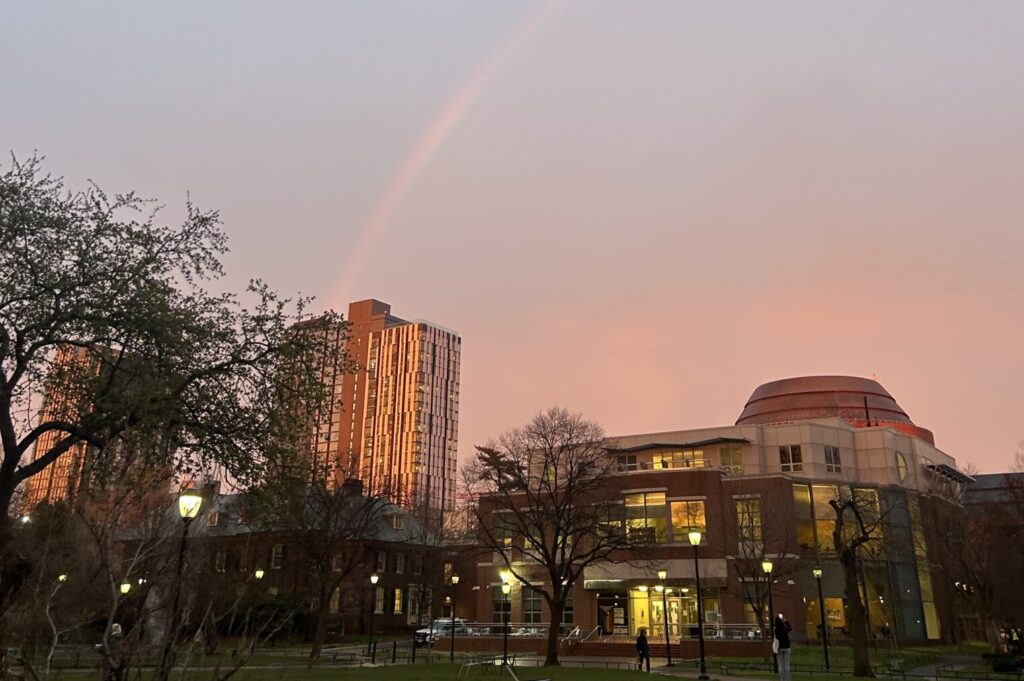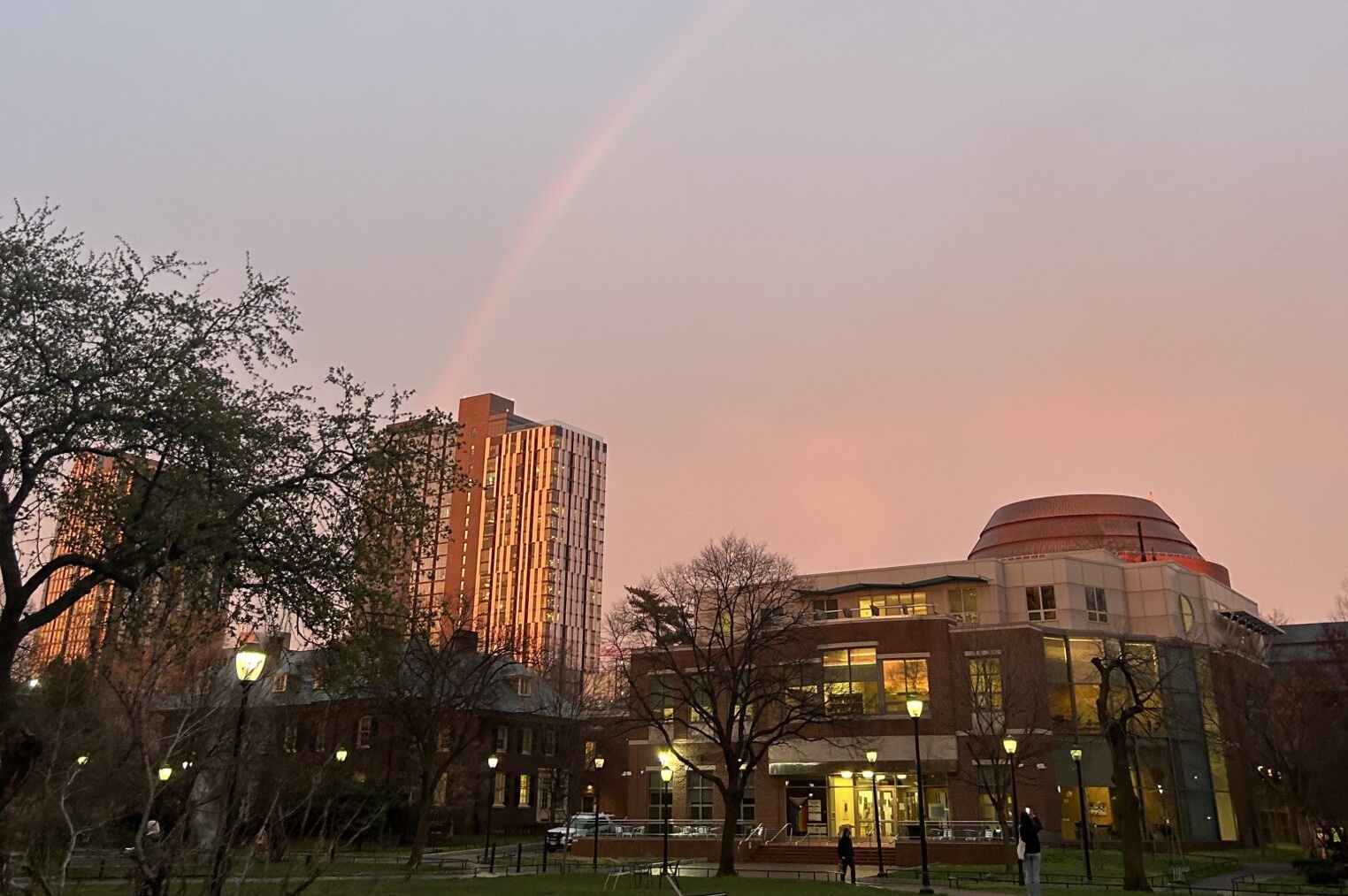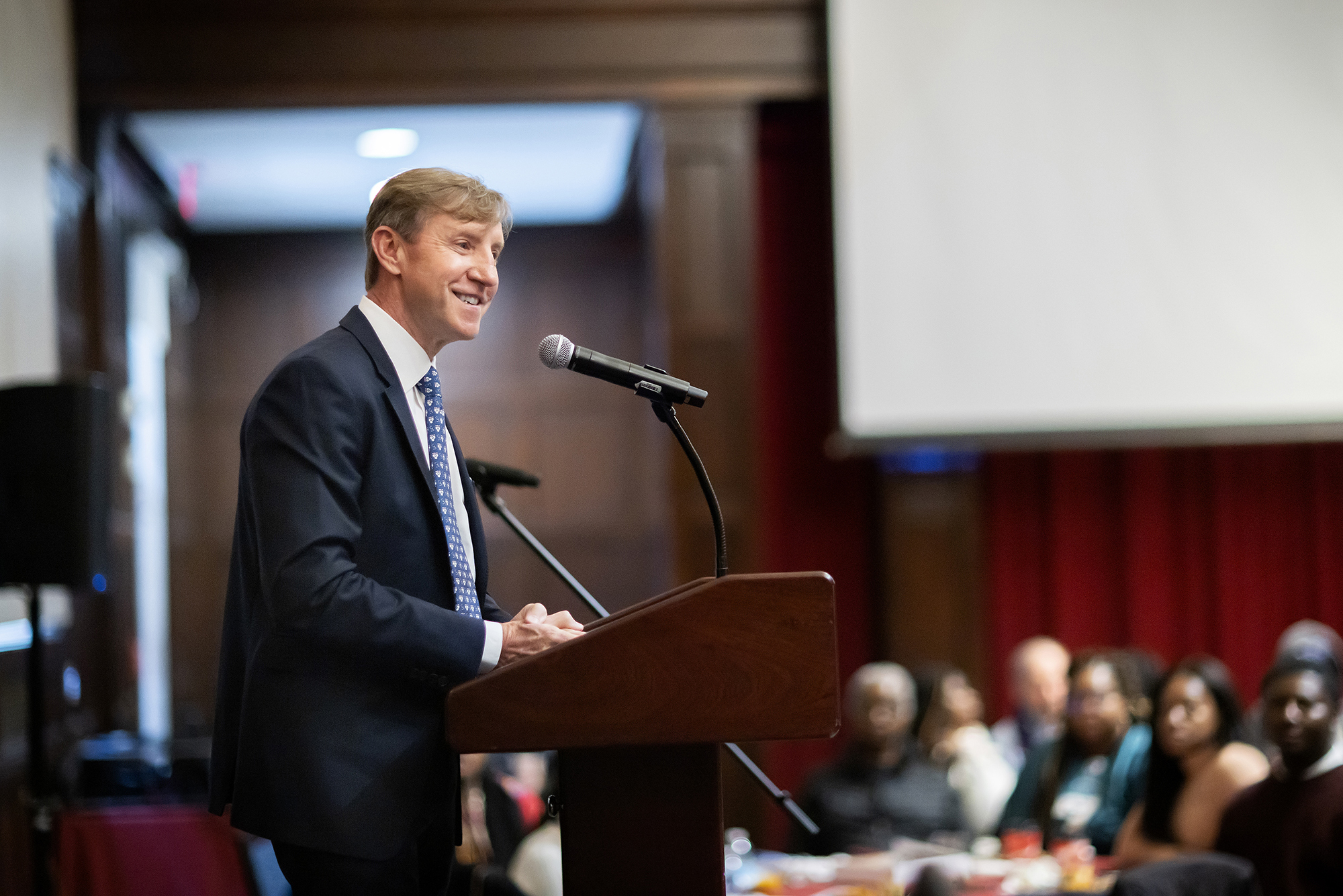An honest contemplation of commemoration and grief during war.

Penn Hillel hosted vigils, commemorations, and other events to mourn the lives lost in the October 7th, 2023, attack on Israel, marking the first anniversary of the tragedy. / Photo Credit: Reagan Reese
By Sarah Mester
October 7, 2024 has come and gone. I am not sure how to feel about the flood of programming commemorating the one year anniversary of the October 7 massacre. That might be because the new, uncertain reality established in the aftermath of the attack has remained the reality after an entire year of war. The disconnect might also have something to do with the fact that a year had not truly passed. October 7 happened on the holiday of Simchat Torah and Simchat Torah this year will be observed on October 24/25, 2024.
In fact, this year October 7 fell not on Simchat Torah, but earlier in the holiday season between Rosh Hashanah (the Jewish New Year) and Yom Kippur (the Day of Atonement) during a reflective period known as the Ten Days of Repentance (collectively known as the “High Holidays” or the “Days of Awe’). The High Holidays are a time of serious introspection ending with the daylong period of fasting and prayer of Yom Kippur. Meanwhile, Simchat Torah is a joyous holiday celebrating the completion of the annual Torah reading cycle. Given the vastly different spiritual tone of Simchat Torah and the Days of Awe, I could not shake off a feeling that the wrong day was being commemorated. The reliance on October 7 as the date for commemoration as opposed to Simchat Torah also felt like a slight, albeit an unintentional one. October 7 was a desecration of Simchat Torah and made grief where there should have been joy and the stripping of that aspect of October 7 from the discourse felt like a partial rejection of what October 7 was—a targeted attack on the Jewish state and the Jewish people on a Jewish holiday.
Nonetheless, despite my various misgivings, I added a note to the Mitzvah Wall that Penn Chabad hosted on Locust Walk and cleared my overburdened midterm schedule to attend the Penn Hillel Memorial Service. I knew that going would be painful, but not going would be even more so. I felt a responsibility to be with my community. I entered the auditorium to find both a sizable crowd of students and, surprisingly, Senator John Fetterman, who was sitting unobtrusively among the crowded, blue-tinged room.
Rabbi Gabe Greenberg, Director of Penn Hillel, called the event to order. I was prepared when I chose to attend the event to listen to the sorrowful story of October 7, even to hear the graphic nature of the attack. I was prepared to be freshly confronted with what happened. I was not prepared, however, to listen to classmate after classmate fight back tears as they read each story. I was even less prepared to look within myself and realize that I was not sure whether I could cry anymore. I was prepared to face my grief, but not to face my lack of grief—a realization that will remain with me from that day of commemoration more than anything else. I was forced to confront how a year of shouldering the emotional weight of war has marked me and my community and made us all less naive about what the world has to offer.
I was relieved when my train of thought was broken by a request to rise for the recitation of the Mourner’s Kaddish. I let the familiar cadence of the chanting of the ancient prayer for the dead become the focal point of my attention:
“Yitgadal v’yitkadash sh’mei raba b’alma di-v’ra chirutei…v’yamlich malchutei b’chayeichon uvyomeichon uvchayei d’chol beit yisrael, ba’agala uvizman kariv, v’im’ru amen”…
May God’s great name be exalted and hallowed throughout the created world, as is God’s wish…May God’s sovereignty soon be established, in your lifetime and in your days, and in the days of all the house of Israel. And we say: Amen”…
October 7 was a tragedy that will continue to be commemorated and remembered, but October 7 was also an event that signaled the shattering of the facade of civility and acceptance that I had taken for granted as an American Jew. I face the difficult question everyday of how to reckon with the changed world that October 7 left behind. I have yet to find any kind of satisfactory answer to that question—I am not sure I ever will.
Sarah Mester is a senior in the College studying Political Science and Classics from San Francisco, CA. She’s the Assistant News Editor for The Pennsylvania Post. Her email is smester@sas.upenn.edu.




